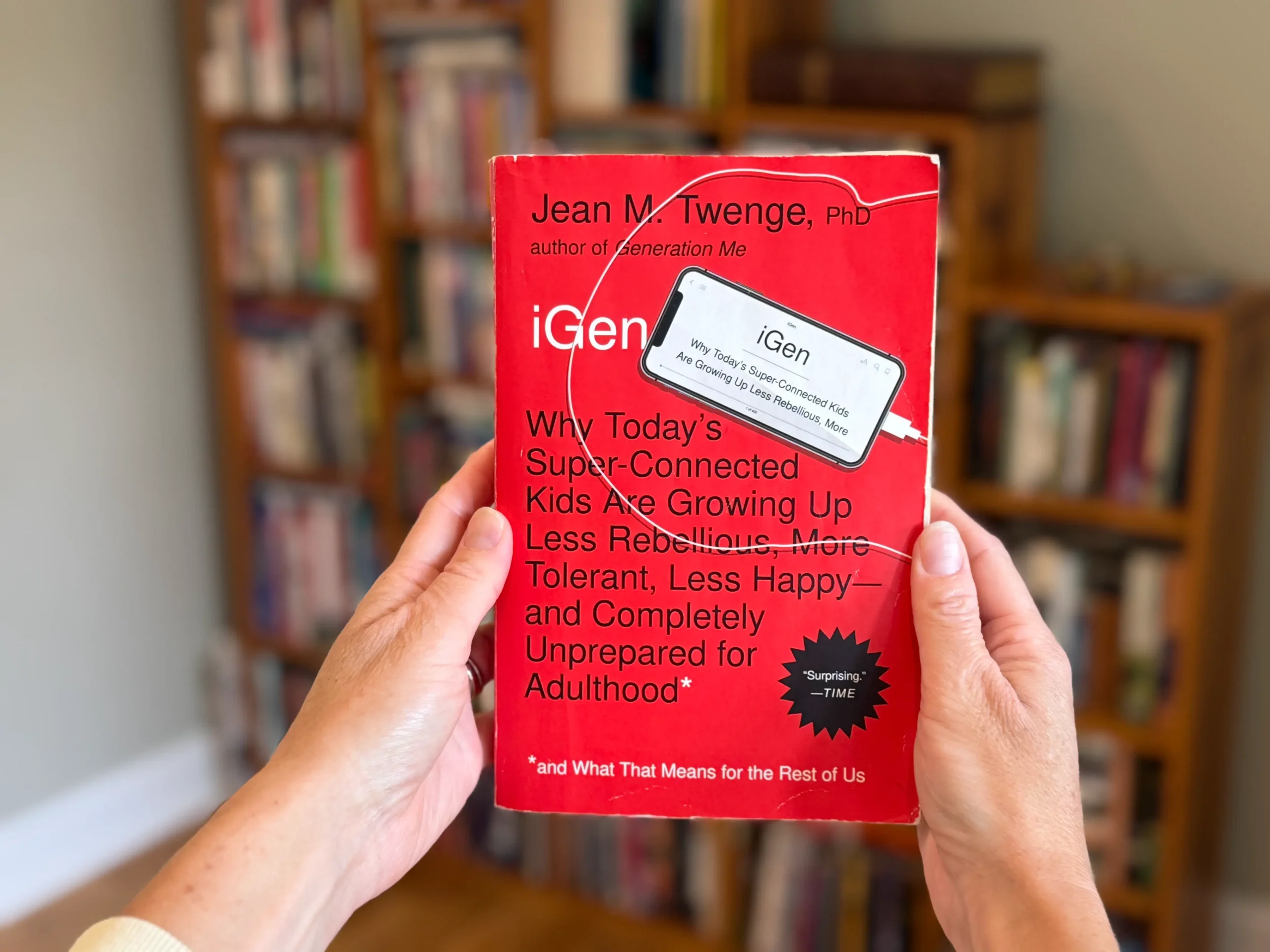“Is being less rebellious a bad thing?” I asked myself when I read the provocative subtitle of researcher Jean Twenge’s book. Wanting the answer, I bought iGen: Why Today’s Super-Connected Kids are Growing Up Less Rebellious, More Tolerant, Less Happy—and Completely Unprepared for Adulthood and began reading.
I’d seen the headlines depicting the negative impact of kids growing up in the digital age. I had even witnessed some of the harmful effects reach my own backyard.
However, Jean’s wealth of research grounded my understanding of what is truly at stake. It also opened a window for me to see where we can go from here.
Her conclusions will surprise you.
Of course, some of Twenge’s findings you’ve heard before—you know that anxiety has been on the rise among teens since smartphones entered the scene.
Even so, you’ve likely not seen the evidence laid out in such dismal detail and with such thorough analysis, it erases all doubt. There is, in fact, a severe correlation between the mental health crisis of the next generation and the increase of technology in their lives.
Any other cause for this uptick in mental health, Twenge thoroughly debunks with more research. I now see as plainly evident: the year the smartphone entered the world’s pockets, the mental health of our teens fell off a cliff.
But that’s not all.
Some effects of the digital age on our children you likely haven’t heard before, and when you do, it’ll astonish you. For example, instead of growing up faster, Twenge argues that our tech-savvy kids are growing up more slowly than previous generations.
They are also less likely to spend time unsupervised. They drink less, date less, and drive less. iGen dives deep into the lesser-known ways phones and screens impact the next generation.
So what? What is Twenge making of all this? iGen will help you discover why some of these trends alarm instead of encourage her, and why you should be concerned too.
Her research can be trusted.
iGen covers the social, religious, sexual, and political trends of the next generation. Furthermore, it details the statistical trends of risky behaviors that adolescents have always been known for.
Twenge’s reliable research methods include dissecting and analyzing fifty years of research from well-known studies, like Monitoring the Future and the CDC’s Youth Risk Behavior Surveillance System (YRBSS). She also includes anecdotal evidence from her own interviews with high school and college students across the nation from various demographics.
As a visual learner, I appreciated iGen’s statistical evidence laid out visually. Her generous text-to-graph ratio is almost one per page. The book is loaded with bar graphs and line graphs comparing the last several generations, showing readers the unique challenges of those growing up with almost no recollection of the analog.
As I journeyed through Twenge’s eye-opening research, I couldn’t help but underline, take notes in the margins, and talk to all my friends about what I was discovering. It has been a treasure as I navigate where to go from here with my own kids. It’s also given me a sober perspective in crafting my message as a digital parenting expert who writes and speaks on this topic.
Get ready for this to be the least boring research you’ve read.
Her approach invites you to respond
Awareness leads to empowerment. When we know what our kids are coming up against, we can be part of changing the tide on the adverse outcomes for the generation Twenge coined “iGen.”
More than a conversation starter, iGen helped me evaluate which pitfalls my kids are falling into. It also encouraged me in areas where my kids are breaking from the cultural norm. Knowing where my family is doing well and where we need improvement has been a gift and an arrow, pointing me in the right direction on my digital parenting journey.
I pray the book will do the same for you as you show up to guide the next generation through the digital age.
Thank you for reading this review. If you know someone else who may enjoy reading this review, please share this article.

Written by: Jenna Kruse
As a speaker, writer, and mom of three, Jenna Kruse helps parents with school-aged kids overcome the frustration, fatigue, and hopelessness of parenting in the digital age so they can enjoy their kids and thrive in their role of raising the next generation to know and love Jesus. Alongside her husband, Jenna has worked with teens for over twenty years in the public school setting, the non-profit sector, and the church.




